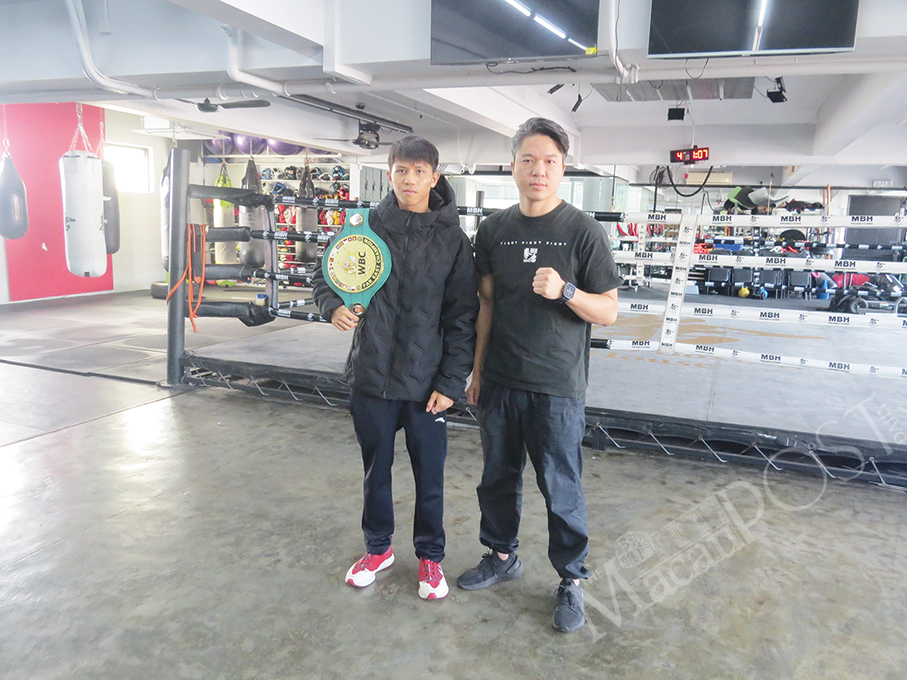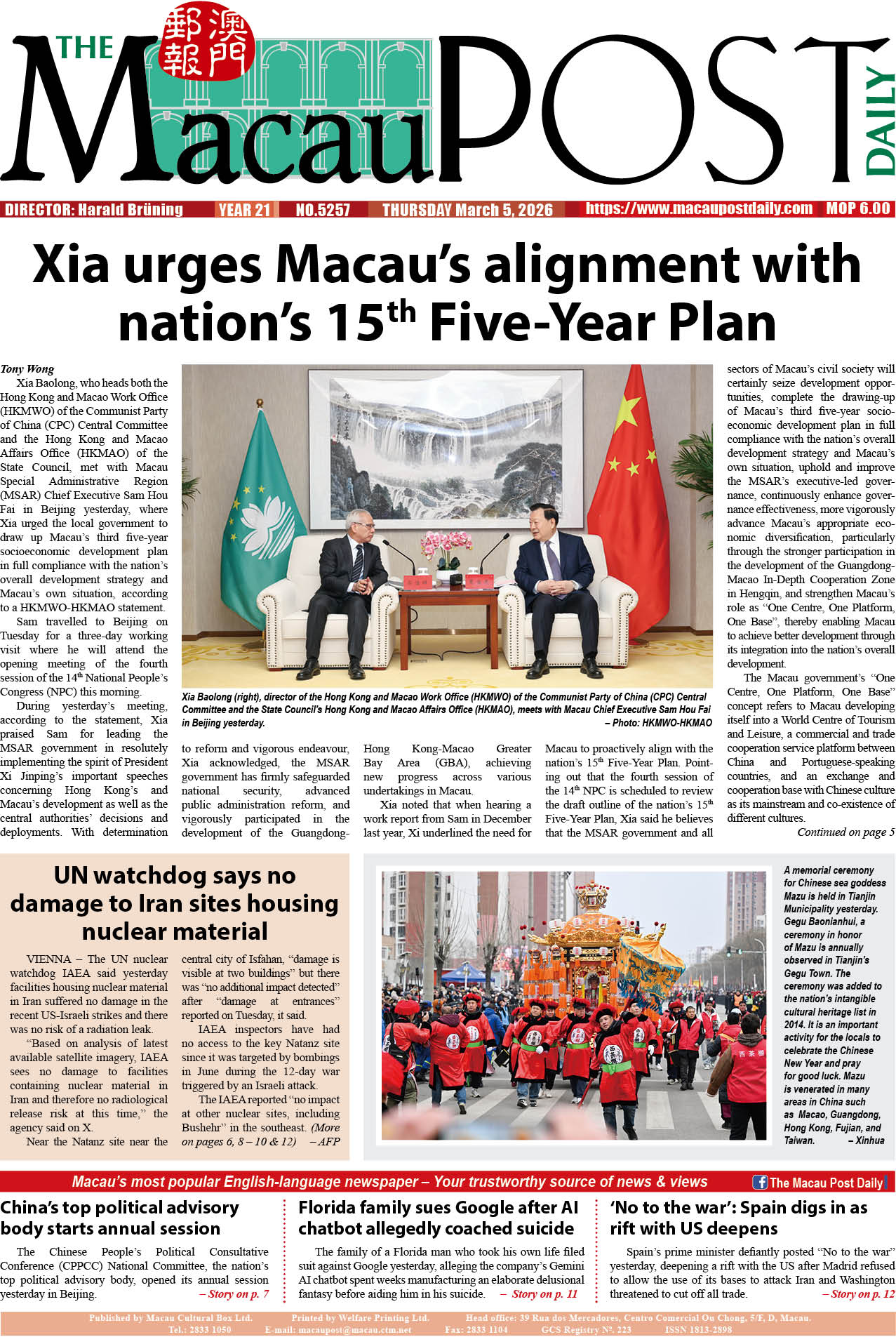The 20th Central Committee of the Communist Party of China (CPC) adopted a resolution at the conclusion of its four-day third plenum last week on “Further Deepening Reform Comprehensively to Advance Chinese Modernisation,” vowing, among other things, to “take a realistic and pragmatic approach, as we work to further unleash and develop the productive forces and tap into and boost the vitality of our society.”
I have been convinced since my years at university back in the 1970s that for result-orientated policies to be enduringly successful they need to be both realistic and pragmatic without, of course, neglecting the fundamental principles that form the bedrock of the respective political system – and there are a raft of inherently different political systems operating in the 193 member states of the United Nations.
The Party holds a third plenum roughly once every five years. Last week’s plenary session chaired by General Secretary Xi Jinping was the third since the current Central Committee members were elected during the Party’s last congress in 2022.
A total of 199 members and 165 alternative members attended the plenum. Senior officials such as from the Standing Committee of the Central Commission for Discipline Inspection were also present at the closed-door meeting in Beijing, but in a non-voting capacity, apart from other representatives working at the primary level, as well as a number of experts and scholars who were delegates to the 20th National Party Congress.
The Party holds a major congress twice a decade. The members of the Central Committee, the largest of the Party’s top decision-making bodies, are elected at each congress. The 20th Central Committee was elected at the 2022 congress.*
Customarily, the Central Committee holds seven plenums in between congresses. The first, second and seventh plenums usually focus on transition matters between Central Committees. The fourth and sixth plenums generally centre on Party matters.
In recent decades, the third plenum has focused on long-term economic reforms, while the fifth plenum customarily deliberates on the central authorities’ five-year development plans. The current five-year plan ends next year.
For historical reasons, the third plenum is widely seen by analysts as the most important of the seven plenary sessions, considering that the one in 1978 under Deng Xiaoping launched the nation’s economic reform drive, thanks to which, ultimately, China is now the world’s number two economic power, after the US and ahead of Germany and Japan. In 1978, China was ranked the world’s 11th by economic size.**
I spent part of my weekend scrutinising the full text of the nearly 3,800-word Communiqué of the Third Plenary Session of the 20th Central Committee of the Communist Party of China***, based on the advice that I received from one of my seasoned editors in Hong Kong in the 1980s, who told me – I am paraphrasing – that if you have time, always read the full text of a document, not just a summary, because you will discover a lot of interesting details for writing a meaningful article.
Last week’s communiqué notes that, notwithstanding the fact that the international environment is “grave and complex”, the CPC Political Bureau has still been able to “secure progress in its arduous tasks of advancing reform and development and ensuring stability at home.”
The communiqué stresses that in order to further deepen reform comprehensively, “we must stay committed to Marxism-Leninism, Mao Zedong Thought, Deng Xiaoping Theory, the Theory of Three Represents, and the Scientific Outlook on Development, and fully implement Xi Jinping Thought on Socialism with Chinese Characteristics for a New Era.”
This section makes it crystal clear that the Party has no plans whatsoever to pursue the West’s so-called “liberal democracy.” I hope that Washington, Brussels, Berlin, London, Paris, Tokyo and the other Western capitals will finally come to terms with the fact that China’s political system is not only here to stay but that it is also doing rather well, certainly better than some of the “liberal democracies” in terms of effectiveness in tackling socio-political issues in particular.
The 20th Central Committee’s resolution emphasises that “we must adhere to the general principle of pursuing progress while ensuring stability and continue to free our minds, seek truth from fact, move with the times, and take a realistic and pragmatic approach…”.
According to the communiqué, the 20th Central Committee also undertook to “ensure the coordinated implementation of the Five-Sphere Integrated Plan and the Four-Pronged Comprehensive Strategy.
The Five-Sphere Integrated Plan is a strategic plan introduced by the central authorities in 2015 to promote the nation’s balanced and sustainable development. The five spheres refer to economic, political, cultural, social and ecological construction, i.e., economic transformation, social wellbeing, environmental sustainability, reforms to strengthen government transparency, accountability, public service delivery, and cultural renaissance.
The Four-pronged Comprehensive Strategy – aka the Four Comprehensives – is a list of political goals put forward by Xi in 2014, namely to comprehensively build a moderately prosperous society; comprehensively deepen reform; comprehensively implement the rule of law; and comprehensively strengthen the Party’s internal discipline and anti-corruption efforts.
According to the communiqué, the Party aims to “finish building a high-standard socialist market economy in all respects” by 2035, laying a solid foundation for building China into a great modern socialist country in all respects by the middle of this century. This involves, according to the communiqué, the Party’s commitment of “advancing whole-process people’s democracy.”
The concept aims to ensure citizens’ comprehensive, direct, and effective participation in the country’s political decision-making and management, such as through multi-party cooperation and political consultation under the leadership of the Party, as well as public consultation feedback on draft laws and policies. Whole-process people’s democracy has also been described by analysts as China’s version of “consultative democracy” in which the Party engages in a process of consultation and deliberation with various stakeholders, such as local governments, industry representatives, and the general public, prior to coming up with major policy decisions.
The communiqué also underlines the Party’s continued commitment to taking a people-centred approach, i.e., a policy that prioritises the wellbeing and needs of the people.
“Developing whole-process people’s democracy is integral to Chinese modernisation,” the communiqué underlines, pointing out that the Party will “improve the mechanisms for consultative democracy, enhance the institutions of democracy at the primary level, and build a broad united front.”
In its resolution passed unanimously, the 20th Central Committee stressed that “the reform tasks laid out in this resolution shall be completed by the time the People’s Republic of China celebrates its 80th anniversary in 2029”. In that year, the Macau Special Administrative Region (MSAR) will celebrate the 30th anniversary of its establishment in 2029 – an important year both for the whole country and its smallest SAR.
The communiqué also underlines a string of other long-term development aims such as the need to “strive to create new growth drivers and strengths, promote full integration between the real economy and the digital economy, enhance the resilience and security of industrial and supply chains, and fully implement the strategy of invigorating China through science and education.”
Besides, the communiqué acknowledges that “integrated urban and rural development is essential to Chinese modernisation” and reaffirms that “opening-up is a defining feature of Chinese modernisation.”
The third plenum also stressed that “we must remain committed to the basic state policy of opening up to the outside world… and refine the mechanisms for high-quality cooperation under the Belt and Road Initiative” (BRI).
On the environmental protection front, the 20th Central Committee’s resolution points out that “Chinese modernisation is the modernisation of harmony between humanity and nature,” underscoring that “we must improve ecological conservation systems, make concerted efforts to cut carbon emissions, reduce pollution, pursue green development, and boost economic growth, actively respond to climate change, and move faster to improve the systems and mechanisms for applying the principle that lucid waters and lush mountains are invaluable assets.”
Nowadays, China is certainly one of the most ecologically committed countries in the world. Its globally successful new energy vehicle (NEV) industry is a shining example of its greenhouse gas reduction commitment because of which the recent imposition of import tariffs by the US and EU on China-made NEVs are nonsensical and, ultimately, irresponsible as far as the global fight against climate change is concerned.
The communiqué also underlines the “decisive significance…of establishing the guiding role of Xi Jinping Thought on Socialism with Chinese Characteristics for a New Era,” urging the whole country to “think in big-picture terms.”
The New Era concept was launched at the Party’s 19th National Congress, having gradually been developed since 2012, when Xi became General Secretary of the Party.
The “New Era” stresses the nation’s rise as a major player on the global stage and the realisation of the “Chinese Dream” of national rejuvenation.
On the foreign policy front, the communiqué underlines that “China remains firmly committed to pursuing an independent foreign policy of peace and is dedicated to promoting a human community with a shared future,” calling “for an equal and orderly multipolar world and universally beneficial and inclusive economic globalisation.”
My personal impression is that in this day and age China boasts one of the world’s most professional foreign affairs teams.
And the communiqué also includes a broad hint vis-á-vis the world’s anti-China forces: “We will resolutely safeguard China’s sovereignty, security, and development interests” – which encompass, beyond a shadow of a doubt, Taiwan and the South China Sea.
The 20th Central Committee also said it remained committed to “moving faster to foster new drivers of foreign trade, take solid steps toward green and low-carbon development, ensure and improve the people’s wellbeing, and consolidate and build upon our achievements in poverty alleviation.”
Last but not least, the communiqué also says that the Party “has secured progress in advancing work related to Hong Kong, Macau, and Taiwan.”
Macau has benefitted immensely from the central authorities’ generosity in supporting its socio-economic development – since its 1999 reversion from Portuguese to local administration in particular. That’s why everyone in Macau should be grateful to the central authorities in Beijing for all that they have done for our city and pay close attention to anything that is happening on the politico-economic development front in the mainland, the Greater Bay Area (GBA) in particular. MSAR residents’ wellbeing will increasingly depend on the GBA’s advancement in the decades to come.
The best way forward for Macau, the GBA and the whole nation is to continue pursuing people-orientated policies based on a realistic-cum-pragmatic approach. At the end of the day, it is results that matter.
– Harald Brüning
*https://www.reuters.com/world/china/what-is-chinas-third-plenum-2024-07-15/
**https://research.nus.edu.sg/eai/wp-content/uploads/sites/2/2017/11/Vol2No4_LuDing.pdf
***https://www.macaupostdaily.com/news/22132








